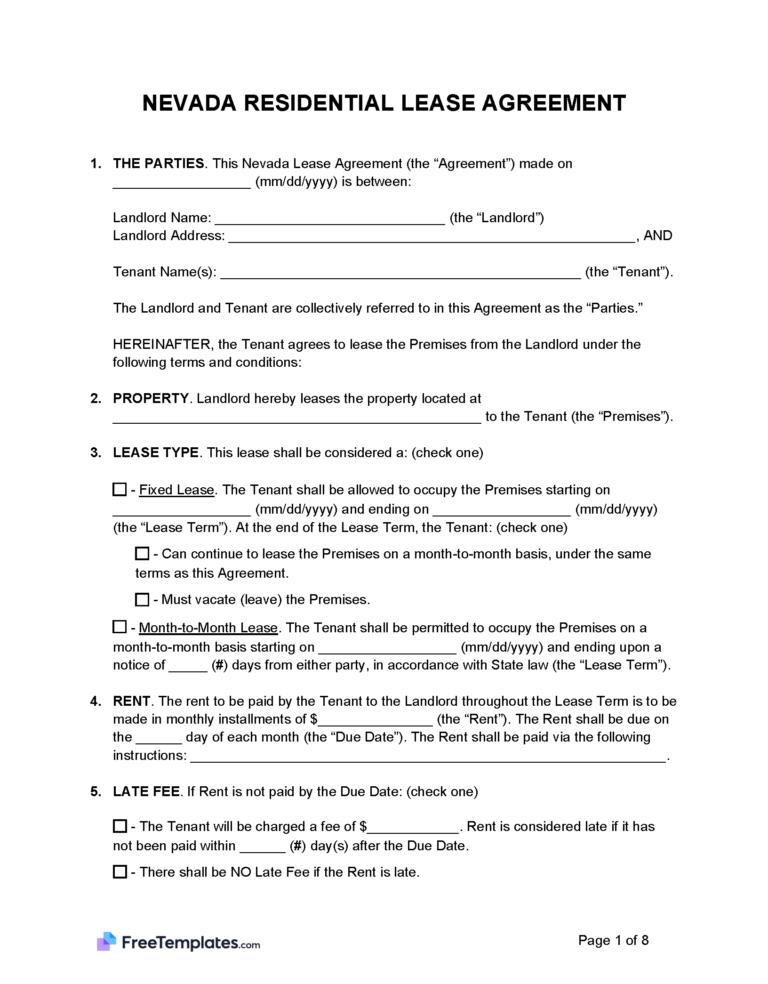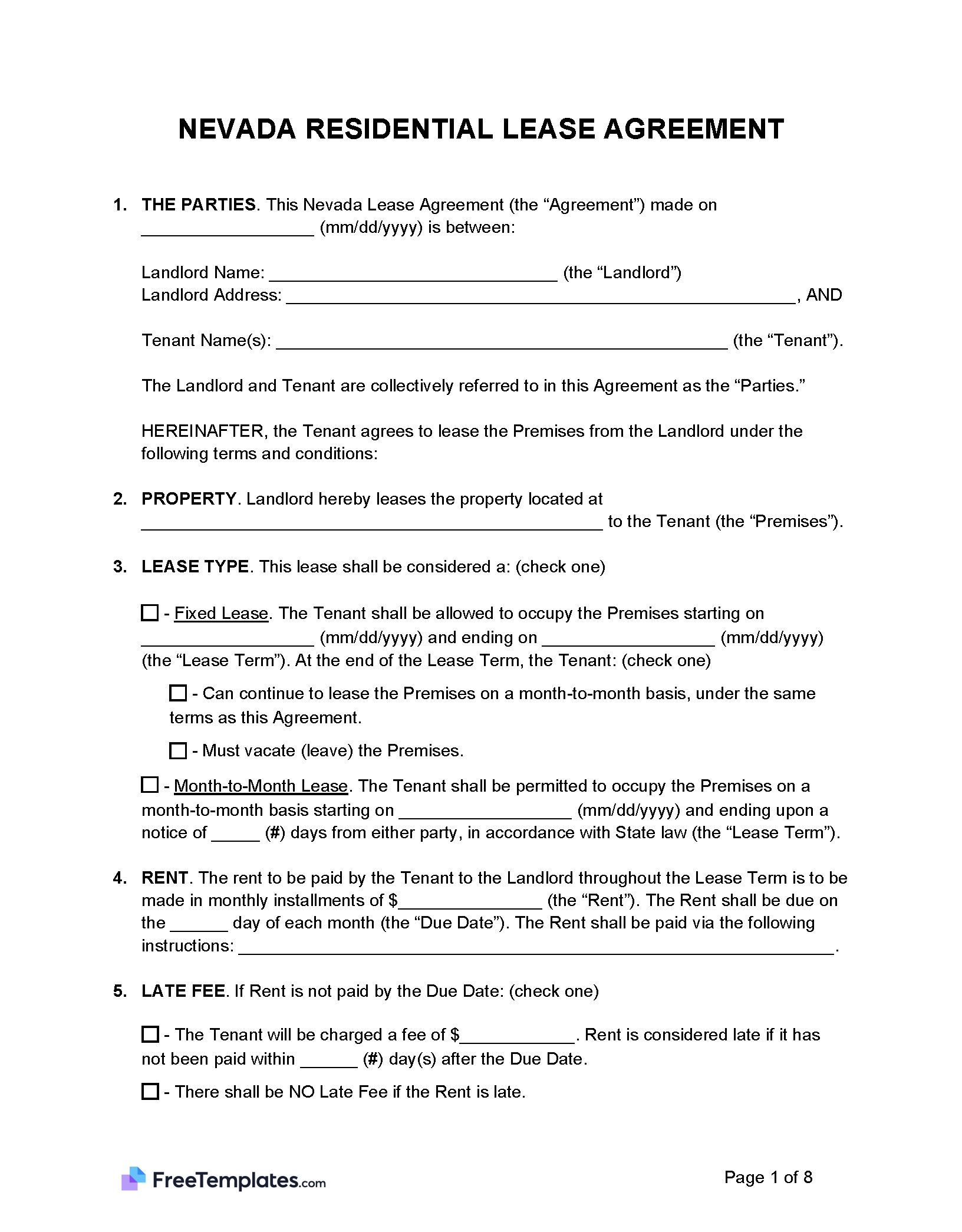By Type (6)
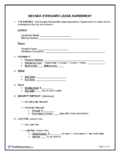 Standard Lease Agreement – A document that outlines the rental of a dwelling for a certain length of time and for a certain sum of money. Standard Lease Agreement – A document that outlines the rental of a dwelling for a certain length of time and for a certain sum of money.
|
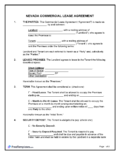 Commercial Lease Agreement – This is similar to a standard lease contract except only used by a business and not for residential properties. Commercial Lease Agreement – This is similar to a standard lease contract except only used by a business and not for residential properties.
|
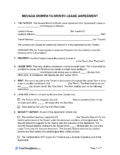 Month-to-Month Lease Agreement – A binding contract for using another person’s space that may end with a 30-day notice by either party. Month-to-Month Lease Agreement – A binding contract for using another person’s space that may end with a 30-day notice by either party.
|
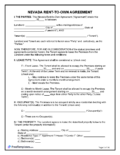 Rent-to-Own Agreement – A contract where the landlord is willing to sell their property to their renter. Rent-to-Own Agreement – A contract where the landlord is willing to sell their property to their renter.
|
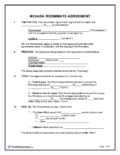 Roommate Agreement – This is used when two individuals want to lease the same space with shared responsibilities. Roommate Agreement – This is used when two individuals want to lease the same space with shared responsibilities.
|
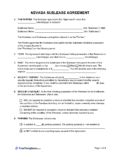 Sublease Agreement – A contract in which the renter allows another individual to assume their lease with the landlord’s permission. Sublease Agreement – A contract in which the renter allows another individual to assume their lease with the landlord’s permission.
|
Disclosures (3)
Lead-Based Paint Disclosure – For any home built before 1978, the landlord is responsible for providing a lead paint disclosure explaining the possible side effects of lead paint that may be present. (EPA/HUD Fact Sheet)
Foreclosure – If the property is impending foreclosure, the landlord is responsible for disclosing that information to the tenant. (§ 118A.275(1))
Inventory and Condition of Premise – The tenant must be provided with a disclosure detailing the property’s inventory and condition at the start of the lease. (§ 118A.200.3(k))
Security Deposit
Interest – What the landlord does with the interest accrued on the security deposit is not mentioned in any Nevada law.
Itemized List Required – If there are any deductions made to the security deposit, then the landlord must provide a detailed list showing why they were charged.
Maximum Amount – The maximum dollar amount a landlord may charge for a security deposit is three months’ rent. (§ 118A.242(1))
Returning to Tenant – The landlord is responsible for returning the security deposit back to the tenant within 30 days of the lease end. (§ 118A.242(4))
Separate Bank Account – The security deposit does not need to be kept in a separate bank account.
Landlord Access
General Access – A 24-hour notice is required if any landlord wishes to gain access to their rental space. (§ 118A.330(3)
Emergency Access – In an emergency, the landlord may enter their property without notice. (§ 118A.330(2))
Paying Rent
Grace Period – Nevada has a 3-day grace period for late rent before the tenant gets charged a late fee. (§ 118A.210(4)(a))
Maximum Late Fee – The maximum late fee amount a landlord may charge is 5% of the monthly rent. (§ 118A.210(4)(b))
Returned Checks (NSF) – If a tenant writes a bad check, they may be charged a $25 fee. (NRS 360.238)
Withholding Rent – If the rental unit is inhabitable, the tenant can withhold payment of up to one month’s rent. The tenant must give the landlord notice and may fix the issue themselves. (NRS 118A.360(1))
Reasons for Eviction (5)
Leaving Before the End Date – Even if a tenant abandons the property, they will still be held liable for covering the rent costs until the original lease ends. If the rental is abandoned, the landlord must try to re-rent the space. (§ 118.175)
Lockouts – A landlord must receive a court order or notice from the sheriff before locking out a tenant. (§ 118.390(1))
Non-Compliance – Not complying with the original agreement may result in a 5-day notice to quit or comply. (§ 40.2516(1))
Non-Payment of Rent – If tenants do not pay their rent, they may be given a 7-day notice to quit or pay. (§ 40.2512(b))
Tenant Maintenance – If the tenant does not comply and perform essential maintenance and cleaning of the rental unit, they may be given a 14-day notice to quit or remedy the issue. The landlord may fix the problem and bill the tenant for the work completed. (§ 118A.440)
